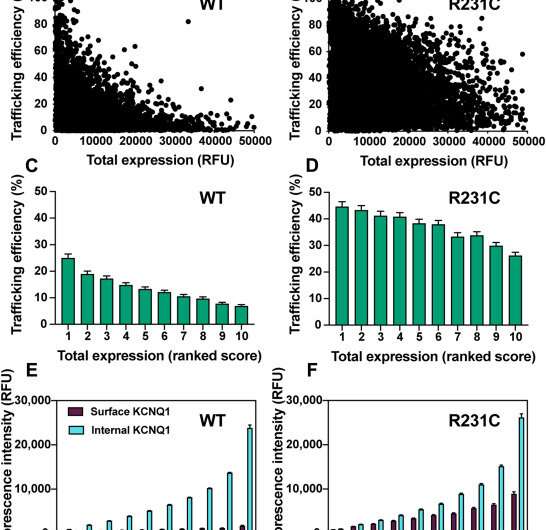
The potassium channel KCNQ1 plays a critical role in the cardiac action potential—the electrical activity underlying heart muscle contraction. Inherited mutations resulting in loss of channel function or gain of function (GOF) cause heart rhythm abnormalities.
Charles Sanders, Ph.D., and colleagues surveyed known disease-linked GOF mutations in KCNQ1 and found that seven of 15 increased the amount of KCNQ1 that reached the cell surface, an effect called “supertrafficking.”
The researchers further characterized a particular supertrafficking mutant channel, R231C, which had plasma membrane levels five times the wild-type channel. Whole-cell electrophysiology showed that the R231C channel is incorrectly always open, but that its open-state current is only 20% that of the wild-type channel. The GOF of R231C reflects the combined effects of supertrafficking, constitutive channel activation, and reduced ion flux.
Source: Read Full Article
